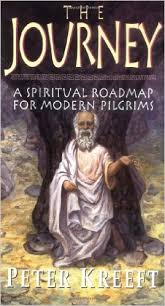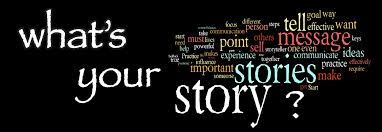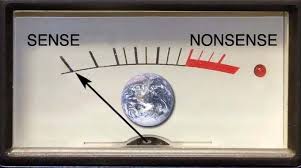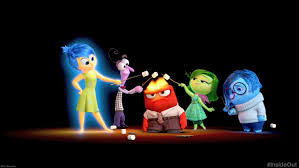“This is a philosophical story we are in, and we will confront opposite philosophies at each fork of [the] road . . . . Time and history do not matter now. The same philosophies, the same alternatives, the same choices that confront you in your world, we ancients had in ours.” — Peter Kreeft, The Journey
In this remarkable little book, philosopher Peter Kreeft presents an allegory after the model of Bunyan’s Pilgrim’s Progress and C. S. Lewis’s Pilgrim’s Regress. “I thought about entitling it Pilgrim’s Egress,” he writes, “since it is about a pilgrimage to find the meaning of life, and about an egress, or escape, from ten wrong turns on this pilgrimage. ” Kreeft opted instead simply for The Journey, and in it he imagines himself being led by Socrates on a quest for the meaning of life.
” Kreeft opted instead simply for The Journey, and in it he imagines himself being led by Socrates on a quest for the meaning of life.
This journey begins in Plato’s philosophical “cave” with the first challenge set forth before a step is even taken in any direction: “Shall I question? Shall I go on this quest for truth at all?” The first philosopher who appears to dissuade “Kreeft” from proceeding is Epicurus, who beckons him to simply stay in his “garden of delights” and “make the most of the only world you have”–that of worldly pleasures set before you. “Eat, drink, and be merry.”
Tempted, “Kreeft” asks Socrates if he can provide a reason why traveling on would be better than staying. “I cannot,” Socrates responds. “I am asking you to question . . . , to wonder. Philosophy begins in wonder, you know.”
“Suppose I choose not to wonder?”
“Then you have chosen not to choose. Remember–you do not have a choice between some philosophy and no philosophy, only between good philosophy and bad philosophy.”
And so they begin. As they make their way, they encounter ten “crossroads” where various philosophical or religious figures attempt to convince them they’ve either arrived at their destination or why there’s no sense in going further. Each crossroads takes them through a progression of humanistic worldviews: skepticism, cynicism, nihilism, materialism, relativism, atheism.
Having discerned the limitations of each potential “stop,” the travelers must now face the biggest question of all: how (or does) God fit into all of this? And if so, what is the nature of this God? New religious options arise: pantheism, deism, polytheism, monotheism. What’s to be made of the claims of the Jews to be “God’s Chosen People” and the source of a “Messiah” in whom alone the fullest and truest meaning of life could be found?
Kreeft’s The Journey makes an excellent companion to go along with this class. In it we see the Socratic Method employed to understand the premises of various worldviews and follow them to their logical ends (their telos). Partly from Kreeft, partly from Jostein Gaarder’s Sophie’s World, and partly from twenty years of broad reading and reflection, I’ve come to see five themes that transcend time and culture in which all worldviews are anchored. The themes are not entirely progressive–that is, one is not completely surpassed by the next. But most have enjoyed a period of ascendance and cultural hegemony that pushed others to the margins of cultural influence.
- What’s Your Story? – understanding the world through the imagination.
- All human civilizations begin with a “myths,” stories which provide answers for the “Three Big WV Questions.” These stories are rooted in culture and language, they incorporate narrative archetypes, and they often include an element of revelation.
- Myth and religion in early human history are intricately connected; both use stories to provide imaginative explanations for human origins and reveal deep truths about the human experience.
- What do ancient sacred writings, drama and literature reveal about truth, beauty, goodness, and the nature of our humanity? Where should we exercise prudence and caution in the realm of imagination?
- Making Sense of Things – understanding the world through senses & experience.
- “Natural philosophy” in many civilizations challenged imaginative stories and supernatural explanations as the valid ways of understanding the “real” world.
- Naturalism focuses on what can be gleaned only by experience using the senses, leading ultimately to science as a primary foundation for explaining the world and the materialist presumption that only physical substances and forces constitute “reality”.
- How do science and empirical methodology shape our understanding of our humanity and our place in the natural world? How do we respond to scientific reductions of all things to mere materiality?
- What’s on Your Mind? – understanding the world through reason, logic, intellect.
- Classical philosophers in the Greco-Roman world, Asia, and Medieval Europe considered “thinking man” one of the defining characteristics of our humanity.
- The relationship between mind and body and the role of reason and logic was a primary concern of philosophy, theology, and ultimately the social sciences in modern times.
- How do classic philosophical questions show us how to live life in proper relationship to our world and our fellow humans? What is the source of morality and ethics? What defines goodness, truth, beauty? Is it all up to us, or is there more
- How Do You Feel About That? – understanding the world through feelings & emotions.
- Enlightenment Rationalism emphasized the “thinking individual” and his/her place in society over traditional structures of authority. Optimistic faith in progress manifest in social reform movements and the politics of human rights.
- Modern Romanticism revived the place of the imagination, giving primacy to the “feeling self” as the sole interpreter of transcendental truth. “Creative genius” is celebrated and idolized in the “high culture” of the arts.
- Is progress inevitable? What role do our feelings play in our understanding of ourselves and our place in the world? Where are the lines between self and society? How do the arts reveal goodness, truth, beauty?
5. Truth Be Told – understanding the world through the claims of the Gospel.
- The Gospel is the essential human story from Creation to Covenant to Christ to Church to Consumation. It makes fullest sense of the Created order: it provides the fullest meaning and understanding to the Big Questions of life; it gives fullest expression to our deepest needs and longings.
- The identity, incarnation, ministry, death and resurrection of Jesus as the Christ is the ultimate “hinge of history” and the fulfillment of God’s design, purpose, sovereignty, love, and grace.
- A Gospel understanding of the world animates and reveals the Truth in the previous 4 themes, while also providing the wisdom and discernment needed to navigate their claims in this fallen world.
- How do you reconcile the Truth of the Gospel with other truth claims such as those of Islam and other religions, scientistic evolution, relativistic pluralism, non-religious spirituality? How do you balance the exclusive claims of the Gospel with the pluralistic realities of contemporary culture?
Stay tuned for more as eventually I hope to unpack each one of these themes in a series of classes (and corresponding posts)





